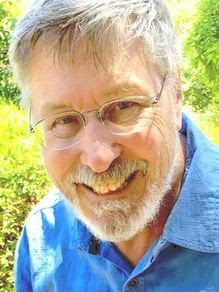In the juvenile court world, the one in which I have operated for seven years now, a disproportionate number of us were traumatized as children. By traumatized, I don't mean we (and I am one of that group) had moments in our youth that were less than Norman Rockwell idyllic. I'm not talking about "oh, I once got spanked by my dad when I misbehaved" or "my mom called me stupid when I was five and I never forgot that."
I'm talking major trauma: physical assault, sexual assault, verbal assault, emotional assault.
How disproportionate is our court? Several years ago, we had a very, very inappropriate (for lots of reasons) all-court training in which the facilitator handed out a worksheet where we marked off responses (by alphabet letters) to various situational questions and then tallied up our letters. Whichever letter you had more of corresponded to an animal with particular personality traits.
Most of the room, maybe 95% of us, were "golden labs," which meant we took care of others, put others' needs in front of our own, carried on even if exhausted, and so on. When most of us raised our hands in response to that identity, the facilitator frowned and looked flummoxed.
"I always get a more diverse population," she said. "I don't understand."
At the first break, a co-worker commented, "She didn't understand because she's never had a room full of the walking wounded."
I'm giving that background so that I can place the rest of this post in context.
As juvenile court staff, we work with traumatized children and teens all the time. Often the parents, especially the mothers, also experienced childhood trauma. So we are constantly looking for training, books, and other resources to learn best practices about serving this population. And because more than one of us are in this population too, we glean what we can from the training and books to help our continued healing too.
A coworker recently gave me a book she uses in her program working with volunteers who served abused, neglected, and dependent children. The book is The Body Keeps The Score: Brain, Mind, and Body in the Healing of Trauma by Bessel van der Kolk, M.D. I just finished it last night and have been turning in my head ever since.
Van der Kolk is a psychiatrist known for his research and work in post traumatic stress. He along with others was instrumental in getting the medical world to recognize post traumatic stress disorder (PTSD) and its high rate of occurrence in military veterans. (He first worked with Vietnam veterans.) He then started working with adults and children who had been traumatized in their childhood. He and his colleagues soon recognized that this population exhibited symptoms that echoed PTSD, but did not fit the definition. (A fascinating part of the book is the extensive work he and others put into defining a new disorder, developmental trauma disorder (DTD) and the rejection of that disorder by the American Psychiatric Association as unnecessary for a "niche" population" As Van der Kolk writes, "One million children who are abused and neglected every year in the United States a 'diagnostic niche'?")
I can't begin to sum up what Dr. van der Kolk lays out in his book, other than say read it yourself or go on YouTube and watch clips with van der Kolk explaining childhood trauma and its impact: neurological, physical, emotional. This is all insightful for the work I do, but it was not what I took away.
What I took away from the book was gratitude.
Gratitude? Absolutely. Almost twenty years ago, I went into counseling, not for the first time. I had a spotty history of therapy, dating back to high school, but had never gotten much benefit out of the counseling. Some of that was due to my inability to be honest about my history; some of it was due to the lack of resources (as van der Kolk makes clear) available to even the most diligent counselor during those years. And some of them, in retrospect, were just mediocre therapists.
But in late 2001 I hit the jackpot.
I went into therapy because my life and my marriage were falling to pieces around me. Without going into great detail, I was in a very toxic marriage, it was killing me, and my sons were being traumatized as well. I finally realized that if I did not get help, I was at risk for harming or killing myself. I needed to stay alive to protect my sons. My husband urged therapy (each of us with our own counselor) as a way to salvage our marriage. I saw therapy as a way to save my life.
My therapist, Douglas Kramer, PsyD, at Ohio State University, was the right therapist at the right time. Over the course of several months, he led me through a series of approaches, especially using guided imagery. Two things he said at the very outset of our meeting have stuck with me all these years.
The first was his explaining how he approached therapy. He was not there to tell me what to do to "get better." "I'm here to help you decide what direction you need to go and help give you ways to determine that within yourself." I remember looking at him and saying, "Good, because if you were going to order me to do this or that, we'd be done right now."
The second thing Doug said, towards the end of that first session and after he had some background on me, is that I was not required to tackle everything in my life and my past. He said that past events were like rocks in a field. They rise to the surface over time but that didn't mean I had to go dig them out. "We can plough around them, April. It's your decision." I remember thinking (and later saying) that there some rocks, especially from my childhood, that I would never dig out. I also remember the session, many weeks down the road, when I walked in and said, "I'm ready to dig some rocks out."
Doug used guided imagery to take me back into my past, to talk and interact with the young April, the April I had been, to bring me (and to a large extent, her) into the present. Van der Kolk describes EMDR (eye movement and desensitization response), a more recent therapy method that we have seen success with at court and that some of my colleagues have gone through and I recognized some of the same techniques (minus the eye) that Doug wove into his guided imagery working with me. Slowly and surely, rock by rock, I worked through my trauma and got my self, my soul if you will, back. (Incidentally, tying Doug and van der Kolk together, I do have a diagnosis of PTSD, because DTD was not identified back then and still is not an official diagnosis.)
That work made the rest of my life possible, from the community work I do to the committed, healthy marriage I have with Warren.
I will always carry my trauma with me, but now it is a scar other than a throbbing wound. I still have trauma triggers—less from my childhood and more from the toxic marriage—and there are times when I have to take a time out and regroup, using techniques that Doug taught me. Yoga helps, and I was thrilled to see that van der Kolk uses it as a therapeutic technique. (Right, Amanda?)
So I am grateful: not for the trauma, but for the healing. Bessel van der Kolk's book was a reminder of just how grateful I still am that when the teacher appeared, I was ready.
***********************************************************************************************************P.S. While writing this blog, I Googled Dr. Bessel van der Kolk to see what he looked like. He looks like this:
Then I looked up Doug, who looks like this today:
I don't think it is coincidence that they both share open, trusting faces. And have great smiles. And have spent their professional lives helping others figure their lives out.


6 comments:
I am so sorry for you childhood trauma. I also had a less than idyllic childhood. But I weather an as they say. You are a wonderful woman. Remember that!
Thanks, Kim. It was what it was. And life is great.
Thank you for this post. I am glad you found healing.
I am new to your blog, so I have been reading previous posts. I am so enjoying your thoughtful, and provoking essays. You combine several of my passions: frugality, reading, and social commentary. Thank you.
I am finding my way in a new normal I find myself in; lost my beloved 2 years ago to cancer. So much of the self reflection I find myself in, you give voice to. You don't know me...but we share a common bond in our humanness. Be well. Grace. Patricia
Welcome, Patricia, welcome.
I'm glad you found someone to help you through the journey of healing. A good therapist is indeed a blessing. It makes sense that those who have a similar past feel called to help those in a similar situation. Thanks for all you do.
Post a Comment